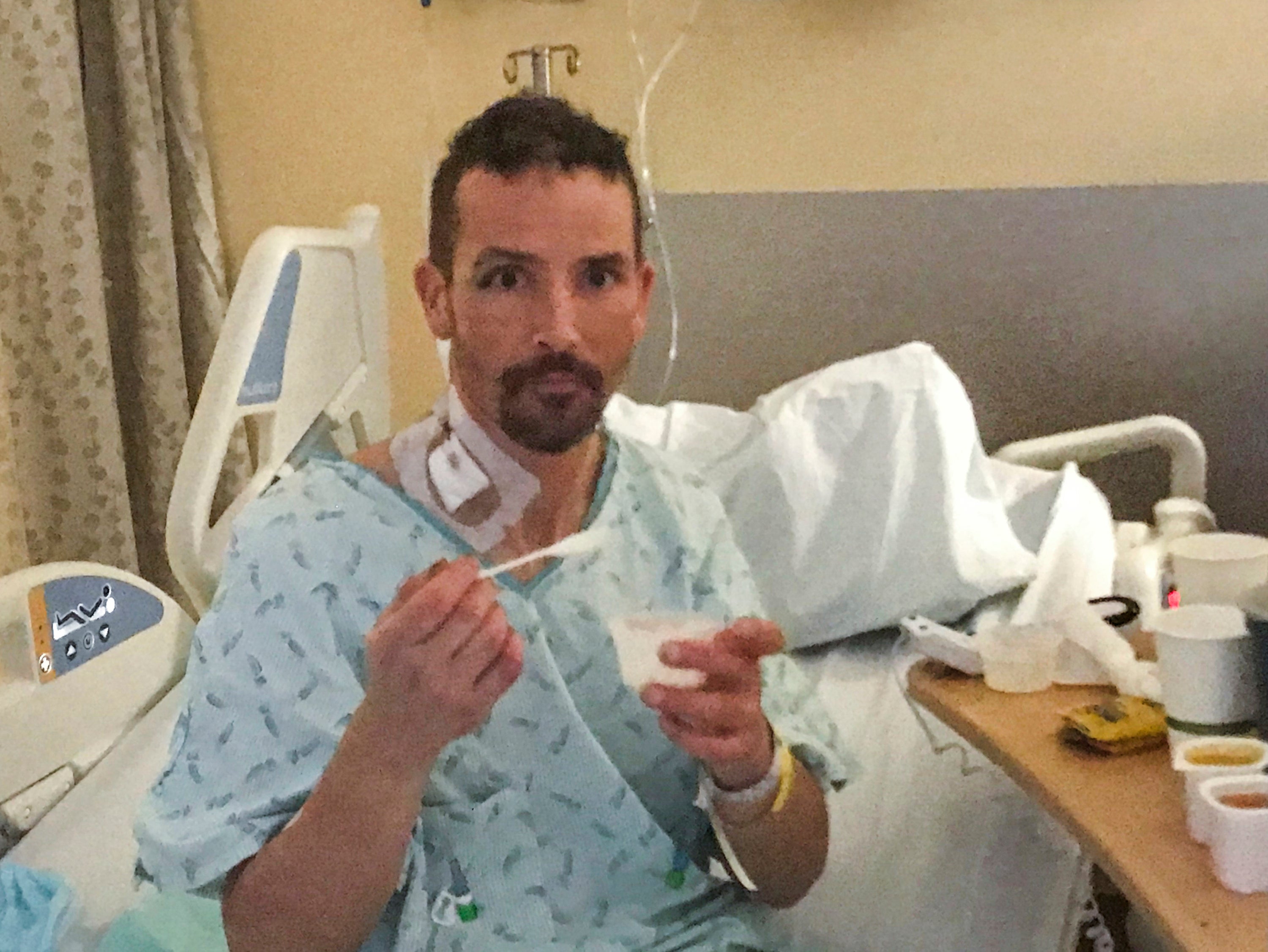Hiker whose heart stopped after Mt. Rainier rescue recovers
A hiker who was rescued after being lost overnight in a whiteout in Mount Rainier National Park has been brought back to life after what his medical team is calling an amazing recovery

A hiker who was rescued after being lost overnight in a whiteout in Mount Rainier National Park has been brought back to life after what his medical team is calling an amazing recovery.
The Seattle Times reports that 45-year-old Michael Knapinski, of Woodinville, died in the emergency room at Harborview Medical Center after being airlifted off the mountain last Sunday.
He had a pulse when he arrived at the hospital but soon his heart stopped, said Dr. Jenelle Badulak, one of the first people to start treating him.
“He died while he was in the ER which gave us the unique opportunity to try and save his life by basically bypassing his heart and lungs, which is the most advanced form of artificial life support that we have in the world,” Badulak said.
The medical team repeatedly performed CPR and hooked him up to an extracorporeal membrane oxygenation (ECMO) machine, which pumped blood out of his body into a heart-lung machine that removes carbon dioxide, and then back into the body.
His heart remained stopped for 45 minutes. After the doctors restarted it, the medical team spent the night beside him to make sure he continued to stabilize.
Two days later, Knapinski woke up. Trauma nurse Whitney Holen was there and said the first thing he wanted was to call his family.
“He was crying and they were crying and I’m fairly sure I cried a little bit,” Holen said. “It was just really special to see someone that we had worked so hard on from start to finish to then wake up that dramatically and that impressively.”
She added, “It reminded me of this is why we do this. This is why we are doing the long hours, this is why we’re away from our families, this is why we’re here.”
He continued to have some trouble with his heart, kidneys and frostbite, but doctors said they believe he'll be OK. He remained in the hospital Saturday.
Knapinski had left for a snowy hike with a friend on the morning of Nov. 7. His friend planned to ski down the mountain to Camp Muir, while Knapinski was going to snowshoe to Paradise.
“I was pretty close to the end (of the trail) … Then it turned to whiteout conditions, and I couldn’t see anything,” Knapinski told The Seattle Times in a phone interview Friday. The last thing he remembers is taking baby steps down the mountain, surrounded by white.
“I’m not sure what happened. I think I fell,” he said, noting bruises and scrapes all over his body.
His friend reported Knapinski missing when he failed to arrive at the Paradise parking lot that evening.
Three National Park Service teams searched for Knapinski until early Sunday, when winter conditions minimized visibility and temperatures dropped to 16 degrees Fahrenheit (minus 8.9 Celsius), the park said. Later that morning, teams returned to their search.
A Navy helicopter team from Whidbey Island began searching in the afternoon when the weather cleared and spotted him in the Nisqually River drainage.
Knapinski said he’s still having some cognitive delays, but is generally in good spirits and making improvements. He said he spends a lot of time doing volunteer work at the Salvation Army Food Bank in Seattle and building houses for foster children through Overlake Christian Church in Redmond.
“And as soon as I get physically able, that’s going to be my calling in life,” he said. “Just helping people. … I’m still just shocked and amazed.”
He added that the hospital staff "just didn’t give up on me. … They did one heck of a job at keeping me alive.”
“I’ve got a million people to thank,” he said.
Bookmark popover
Removed from bookmarks